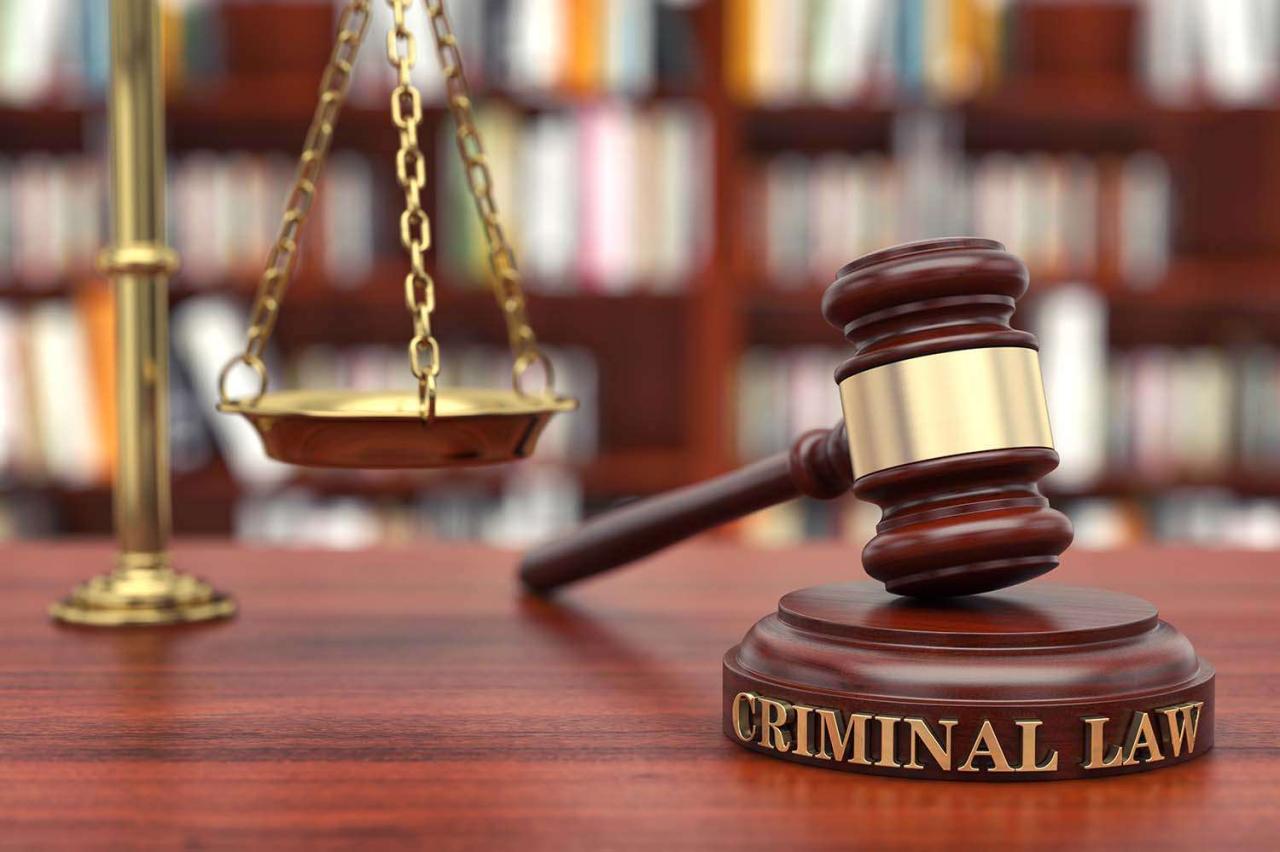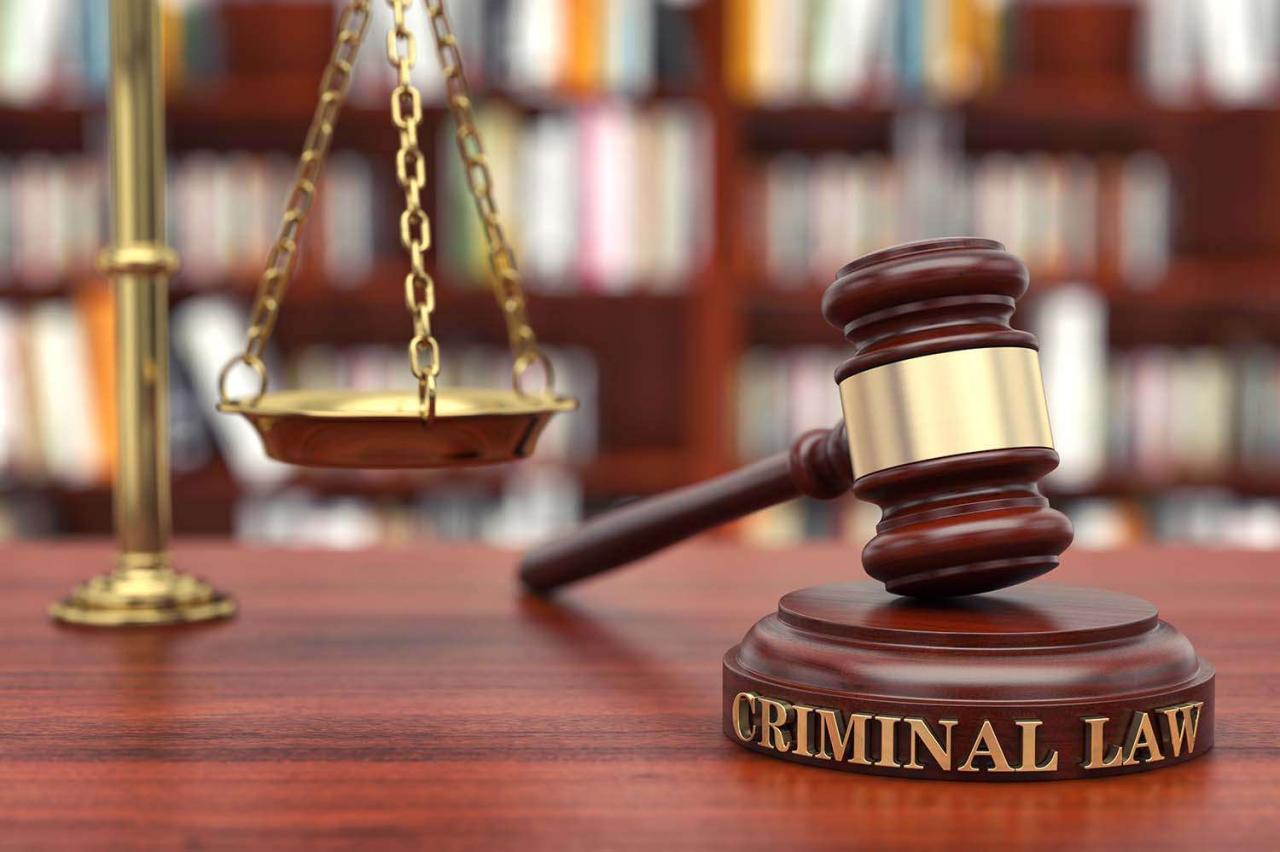Criminal defense lawyers are the unsung heroes of the legal system, standing as a bulwark against the complexities and potential injustices of the law. They are the voice of the accused, navigating the intricate maze of criminal proceedings to ensure their clients receive a fair and just outcome.
From the initial arrest to potential sentencing and appeals, criminal defense lawyers play a pivotal role in safeguarding the rights of individuals facing criminal charges. They are skilled negotiators, strategic thinkers, and passionate advocates who are dedicated to ensuring their clients’ voices are heard and their interests protected.
The Importance of Legal Representation
Facing criminal charges can be an overwhelming and stressful experience. Navigating the complexities of the legal system without proper guidance can lead to serious consequences. This is where the role of a criminal defense lawyer becomes crucial. Having a skilled and experienced lawyer by your side can significantly impact the outcome of your case and protect your rights.
Benefits of Legal Representation
A criminal defense lawyer brings a wealth of knowledge and expertise to your case. They understand the intricacies of criminal law, court procedures, and evidence rules. This allows them to effectively advocate for your best interests and navigate the legal system on your behalf. Here are some key benefits of having a lawyer represent you:
- Understanding Your Rights: Criminal defense lawyers are well-versed in your constitutional rights and ensure they are protected throughout the legal process. They can explain complex legal concepts in an understandable manner, empowering you to make informed decisions.
- Negotiating with Prosecutors: Lawyers have the skills and experience to negotiate with prosecutors on your behalf. They can explore potential plea bargains, reduce charges, or even seek dismissal of the case altogether.
- Building a Strong Defense: Lawyers conduct thorough investigations, gather evidence, and identify potential defenses to your charges. They can challenge the prosecution’s case and present compelling arguments in your favor.
- Representing You in Court: Lawyers represent you in court proceedings, including hearings, trials, and sentencing. They ensure that your rights are protected and that you receive a fair trial.
Potential Consequences of Not Having Legal Representation
While it may seem tempting to represent yourself in a criminal case, it’s important to understand the potential consequences. Without legal expertise, you may:
- Misunderstand Legal Procedures: Navigating the legal system without guidance can lead to mistakes that could jeopardize your case. For example, failing to file necessary paperwork or missing deadlines can have serious repercussions.
- Make Uninformed Decisions: Without a lawyer’s advice, you may make decisions that are not in your best interests. This could include accepting a plea bargain that is not favorable or waiving your rights unknowingly.
- Face More Severe Penalties: A lawyer can help you build a strong defense and potentially reduce the severity of your charges or sentence. Without legal representation, you may face harsher penalties than you would have with a lawyer.
- Be Vulnerable to Prosecution Tactics: Prosecutors are experienced legal professionals who know how to build a strong case. Without a lawyer to counter their tactics, you may be at a disadvantage.
Criminal Defense Strategies
Criminal defense lawyers employ a wide range of strategies to protect their clients’ rights and achieve the best possible outcome in a criminal case. These strategies are designed to challenge the prosecution’s case, present mitigating factors, and negotiate favorable plea bargains.
Challenging the Prosecution’s Case
Defense attorneys often focus on challenging the prosecution’s evidence and arguments. This can involve:
- Attacking the credibility of witnesses: Defense attorneys may point out inconsistencies in witness testimony, highlight biases, or question the witness’s ability to perceive or recall events accurately. For example, if a witness claims to have seen the defendant commit a crime, the defense attorney might argue that the witness’s view was obstructed or that they were under the influence of drugs or alcohol at the time.
- Raising doubts about the reliability of physical evidence: Defense attorneys may challenge the chain of custody of physical evidence, question the accuracy of laboratory testing, or argue that the evidence was planted or tampered with. For example, if a gun is found at the scene of a crime, the defense attorney might argue that the gun was not properly secured or that it could have been planted by someone else.
- Presenting alternative theories of the crime: Defense attorneys may present alternative explanations for the events in question, suggesting that someone else committed the crime or that the defendant acted in self-defense. For example, in a murder case, the defense attorney might argue that the victim’s death was an accident or that the defendant was acting in self-defense against an attacker.
Negotiating Plea Bargains, Criminal defense lawyer
Plea bargaining is a common practice in the criminal justice system, where the defendant agrees to plead guilty to a lesser charge in exchange for a reduced sentence. Defense attorneys often negotiate plea bargains on behalf of their clients, seeking to minimize the potential consequences of a conviction.
- Evaluating the strength of the prosecution’s case: Defense attorneys assess the evidence and legal arguments available to the prosecution to determine the likelihood of a conviction at trial. This helps them assess the potential risks and benefits of accepting a plea bargain.
- Negotiating with the prosecution: Defense attorneys negotiate with the prosecutor to reach a plea agreement that is favorable to their client. This may involve reducing the severity of the charges, lowering the potential sentence, or dropping certain charges altogether.
- Considering the client’s goals and circumstances: Defense attorneys advise their clients on the potential consequences of accepting a plea bargain, taking into account factors such as the client’s criminal history, the nature of the charges, and the potential sentence. Ultimately, the decision of whether to accept a plea bargain rests with the client.
Ethical Considerations
Defense attorneys have a duty to zealously represent their clients within the bounds of the law and ethical rules. This means that they must:
- Act in the best interests of their clients: Defense attorneys must prioritize their clients’ interests, even if those interests conflict with the interests of society or the prosecution.
- Maintain client confidentiality: Defense attorneys are obligated to keep all communications with their clients confidential, even if those communications reveal information that could be used against the client in court.
- Avoid conflicts of interest: Defense attorneys must avoid situations where their personal interests or relationships with other parties could compromise their ability to represent their clients effectively.
The Role of Evidence

Evidence is the foundation of any criminal case. It is the information that judges and juries use to determine whether a defendant is guilty or not guilty. Without strong evidence, a prosecution cannot prove its case, and a defense attorney cannot effectively defend their client.
Types of Evidence
Evidence can be presented in many different forms, each with its own rules of admissibility. Here are some of the most common types of evidence:
- Direct Evidence: This is evidence that directly proves a fact in issue. For example, eyewitness testimony directly proves that a person saw the defendant commit the crime.
- Circumstantial Evidence: This is evidence that indirectly proves a fact in issue. For example, finding the defendant’s fingerprints at the crime scene is circumstantial evidence that suggests they were present at the crime.
- Real Evidence: This is physical evidence that is directly related to the crime. For example, the murder weapon, the victim’s bloodstained clothing, or the defendant’s DNA found at the crime scene are all examples of real evidence.
- Documentary Evidence: This is written evidence that is relevant to the case. Examples include police reports, medical records, financial records, and letters.
- Testimonial Evidence: This is evidence presented by a witness who testifies in court. The witness can be the victim, the defendant, an eyewitness, or an expert.
Admissibility of Evidence
Not all evidence is admissible in court. The rules of evidence determine which evidence is relevant and reliable. For example, evidence that is obtained illegally, such as through an illegal search and seizure, may be inadmissible. Additionally, hearsay evidence, which is an out-of-court statement offered to prove the truth of the matter asserted, is generally inadmissible.
Challenging or Presenting Evidence
Defense attorneys play a crucial role in challenging or presenting evidence to support their client’s case. They can:
- Challenge the Admissibility of Evidence: If the prosecution tries to introduce evidence that is inadmissible, the defense attorney can object to its admission.
- Present Evidence to Support the Defendant’s Case: The defense attorney can present evidence to support the defendant’s version of events, challenge the prosecution’s evidence, or raise reasonable doubt about the prosecution’s case.
- Cross-Examine Witnesses: During cross-examination, the defense attorney can question witnesses called by the prosecution to challenge their testimony, highlight inconsistencies, and expose any potential biases.
Epilogue: Criminal Defense Lawyer
In a world where legal complexities can seem daunting, having a criminal defense lawyer by your side can make all the difference. They are the bridge between the individual and the legal system, offering guidance, support, and a strong voice in the pursuit of justice. Whether you are facing a minor offense or a serious felony, understanding the role of a criminal defense lawyer is crucial in navigating the complexities of the criminal justice system.
Navigating the complexities of the legal system can be daunting, especially when facing criminal charges. A skilled criminal defense lawyer is crucial in such situations, providing expert legal guidance and representation. If you’re interested in pursuing a career in law, you might find California State University: A Comprehensive Guide helpful.
It offers valuable insights into the various programs and resources available at CSU campuses, including those related to legal studies. Ultimately, understanding the legal landscape and the role of a criminal defense lawyer is essential for ensuring your rights are protected.
